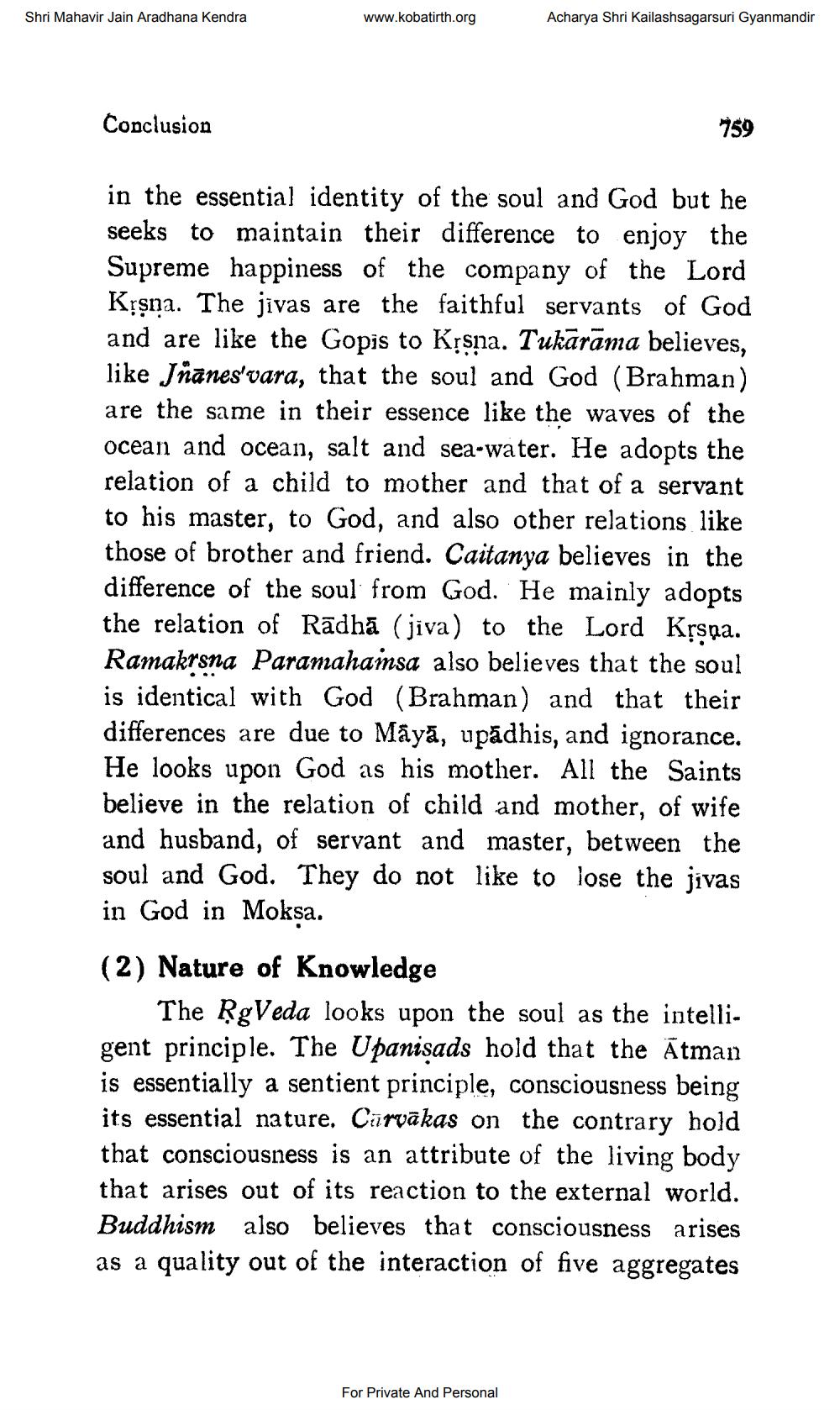________________
Shri Mahavir Jain Aradhana Kendra
Conclusion
www.kobatirth.org
Acharya Shri Kailashsagarsuri Gyanmandir
759
in the essential identity of the soul and God but he seeks to maintain their difference to enjoy the Supreme happiness of the company of the Lord Krsna. The jivas are the faithful servants of God and are like the Gopis to Krsna. Tukarāma believes, like Jnanes'vara, that the soul and God (Brahman) are the same in their essence like the waves of the ocean and ocean, salt and sea-water. He adopts the relation of a child to mother and that of a servant to his master, to God, and also other relations like those of brother and friend. Caitanya believes in the difference of the soul from God. He mainly adopts the relation of Radha (jiva) to the Lord Kṛṣṇa. Ramakrsna Paramahamsa also believes that the soul is identical with God (Brahman) and that their differences are due to Maya, upadhis, and ignorance. He looks upon God as his mother. All the Saints believe in the relation of child and mother, of wife and husband, of servant and master, between the soul and God. They do not like to lose the jivas in God in Moksa.
For Private And Personal
(2) Nature of Knowledge
The RgVeda looks upon the soul as the intelligent principle. The Upanisads hold that the Atman is essentially a sentient principle, consciousness being its essential nature. Cārvākas on the contrary hold that consciousness is an attribute of the living body that arises out of its reaction to the external world. Buddhism also believes that consciousness arises as a quality out of the interaction of five aggregates




